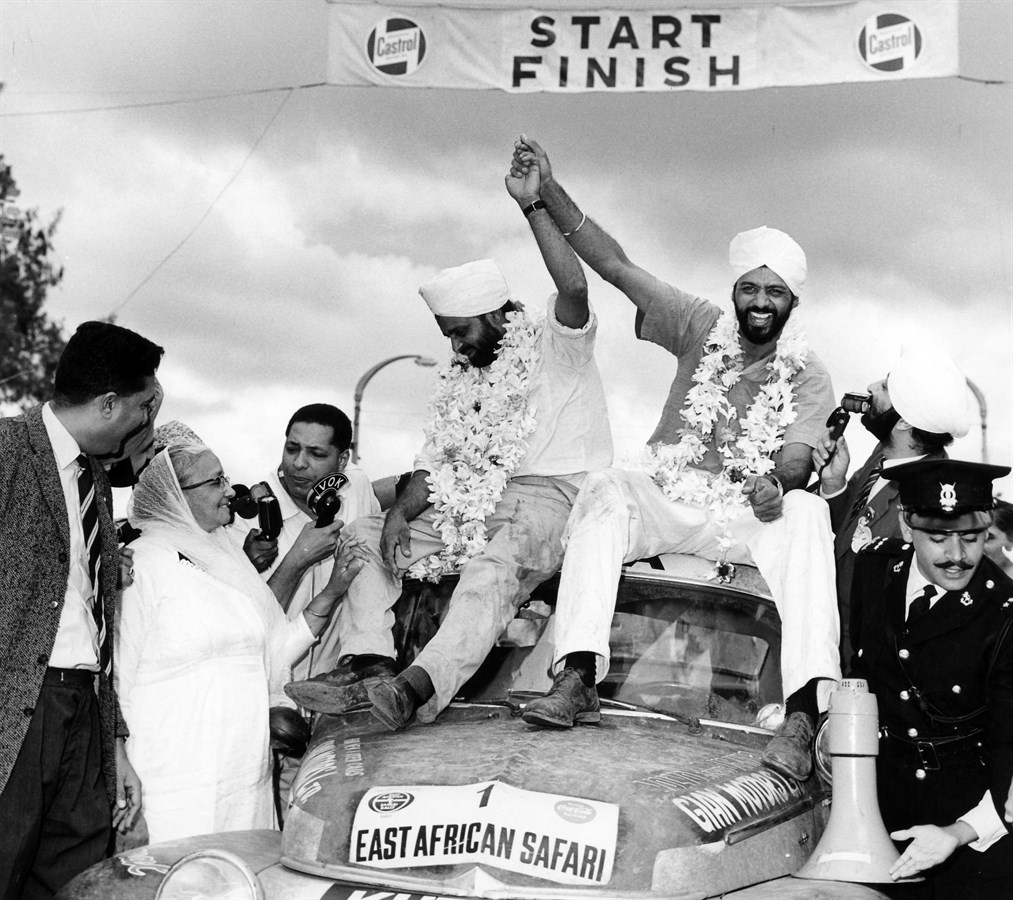Kai Herzog

Kai Herzog studierte Geschichte und Germanistik an der Universität Stuttgart sowie Global History an den Universitäten Heidelberg und Lund. Anschließend arbeitete er an der Universität Basel an seinem Promotionsprojekt zu Kontinuitäten und Folgen von Alltagsgewalt im südwestlichen Afrika im späten 19. Jahrhundert. Im August 2023 reichte Herzog seine Dissertation mit dem Titel „Violent Economies: Everyday Violence, Ignorance, and the Making of Colonial Order in the Namaqualand Borderlands, c. 1880-1903“ ein. Seit Oktober 2023 ist Kai Herzog wissenschaftlicher Mitarbeiter an der Professur für Wissensgeschichte moderner Gesellschaften an der Helmut-Schmidt-Universität. Zusätzlich ist er als Projektkoordinator an der Universität Basel tätig. Zu seinen Forschungsschwerpunkten gehören die koloniale und postkoloniale Geschichte Süd- und Ostafrikas im 19. und 20. Jahrhundert, die Geschichte der Gewalt – insbesondere der Alltagsgewalt – in kolonialen Kontexten sowie die Geschichte des Motorsports. Sein Fokus liegt dabei auf der Auseinandersetzung mit sozial-, wirtschafts-, arbeits-, und technikgeschichtlichen Fragestellungen.
CV
2023-heute
Wissenschaftlicher Mitarbeiter an der Professur für Wissensgeschichte moderner Gesellschaften an der Helmut-Schmidt-Universität/Universität der Bundeswehr Hamburg
2021-heute
Koordinator des SNF Sinergia-Projektes „African Contributions to Global Health“ an der Universität Basel
2020-2021
Lehrbeauftragter am Department Geschichte der Universität Basel
2017-2021
Assistent am Departement Geschichte der Universität Basel im Rahmen des SNF-Projektes „Violent Encounters: Practices and Perceptions of Violence in Southern Namibia and the Northern Cape, c. 1880-1910”
2016-2024
Doktorat an der Universität Basel
2016-2017
Start-Stipendiat der Basel Graduate School of History
2012-2015
Master-Studium der Global History an der Ruprecht-Karls-Universität Heidelberg und der Lunds Universitet (Schweden)
2009-2012
Bachelor-Studium der Geschichte und Germanistik an der Universität Stuttgart
Publikationen
Zeitschriftenaufsätze (peer-reviewed)
Intimacy, labour and sexual violence: Nama and Baster women in Namaqualand’s copper mining district (c. 1879-1900), in: Africa 94, H. 1 (2024), S. 57-76. (siehe Link)
(mit Julia Tischler), Violence and intimicy in colonial and postcolonial Africa, in: Africa 94, H. 1 (2024), S. 1-16. (siehe Link)
Violence and Work. Convict Labour and Settler Colonialism in the Cape-Namibia Border Region (c. 1855-1903), in: Journal of Southern African Studies 47, H. 1 (2021), S. 17-36.
(mit Bernard C. Moore, Stephanie Quinn und William Blakemore Lyon), Balancing the Scales: Re-Centring Labour and Labourers in Namibian History, in: Journal of Southern African Studies 47, H. 1 (2021), S. 1-16.
Forschung
Racing Imperialism and Independence: East Africa’s Safari Rally, 1953-2002

My postdoc project focuses on the iconic Safari Rally from its beginnings to 2002, when it disappeared from the international motorsports stage. The rally was started in 1953 under British rule in the empire’s East African colonies and was hosted without interruption throughout the post-independence period. First as a tri-national event together with Uganda and Tanzania, and from 1975 onward within the Republic of Kenya alone. Three years earlier, in 1973, the rally had become part of the World Rally Championship (WRC) when the latter was initiated by the Fédération Internationale de l’Automobile (FIA), the world governing body of motorsports. I use this motorsports event as lens to tap into the socio-political and technological history of Kenya and the colonial and post-colonial history of East Africa more broadly, both from a local and a global perspective. The project strives to provide fresh insights into the various social, political, and economic transformations that the use of the technology of the motor car for the rally event triggered, and that accompanied the downfall of British imperial and settler colonial rule and the establishment of post-independence regimes. It shows how these changes were shaped and negotiated by a wide array of historical actors – including government representatives, sports officials, drivers, navigators, and mechanics – in settings shaped by entanglement and disruption.
The Safari Rally started as a leisure activity for white settlers of East Africa, a year after the Mau Mau War (1952-1960) broke out and the British declared a state of emergency. After gaining independence in 1963, flagging off the rally winners was a Kenyan state affair, with the president waving the national flag at the finish line in Nairobi. After the Safari had attained the WRC status, the Kenyan government made every effort to promote the rally. After all, it not only attracted international car manufacturers to the East African market but was also seen as a global ‘showcase event’ for the young Kenyan republic, due to which rising numbers of tourists flocked to the country. My project explores how the Safari Rally was used by East African settler regimes, colonial officials in the metropole of the British Empire, and leaders of independent Kenya and other East African countries to pursue their political agendas. It analyses how the instrumentalisation of this motorsport event helped to uphold rule in a period that was fraught with (violent) tension and characterised by nationalisation and economic decline, but also by the internationalisation of motorsports and a globalising car manufacturing industry. Furthermore, the project examines the socio-economic relevance of the Safari Rally throughout this period. The focus is set deliberately on ‘ordinary’ men and women from Kenya and other parts of East Africa with close ties to the sport: drivers and co-drivers, sports officials, mechanics, as well as car dealers. Life histories suggest that, especially in the early decades of the Safari Rally, a victorious drive had the power to transform a humble existence into a prestigious, international sporting career. On a more general level, the rally seems to have promised a proper income and opened up pathways to new careers and social upward mobility for men and women of various backgrounds: by driving, navigating, and repairing race cars, importing and selling road-versions of them, as well as lobbying for the sport. This was of particular relevance in a setting in which the sport of rally driving became more and more internationalised while national borders grew thicker and economic prospects were increasingly bleak.
The project taps into several research gaps. Despite its historical relevance, the Safari Rally itself has been largely overlooked by historians. More generally, historical research still rarely engages with motorsport in Africa. To be sure, important forays have been made. A growing body of work of Africanist scholarship engages with the role and impact of the motor car on the continent. In recent years, several studies have also appeared that deal with the historical significance of motorsport events, such as the South African Formula 1 Grand Prix or the Rally Dakar. Despite these advances, however, in-depth research on the racingof motor cars in Africa, the social, political, and economic impact of this technology for sporting purposes, and the organisation and promotion of motorsport events is still missing. The absence of motorsport in the literature on sports history is particularly startling, given the prominence this area of research has rightly gained in the last decades among Africanist historians, historians of imperialism and colonisation, and in the field of global history. The project builds on various printed, archival, and oral sources, including government correspondence, memoirs of drivers and navigators, and interviews with former practitioners and officials of the sport.
Bildnachweis: https://www.media.volvocars.com/global/en-gb/media/photos/161288/the-singh-brothers-and-their-volvo-pv-544-19651
Letzte Änderung: 10. Juni 2024
